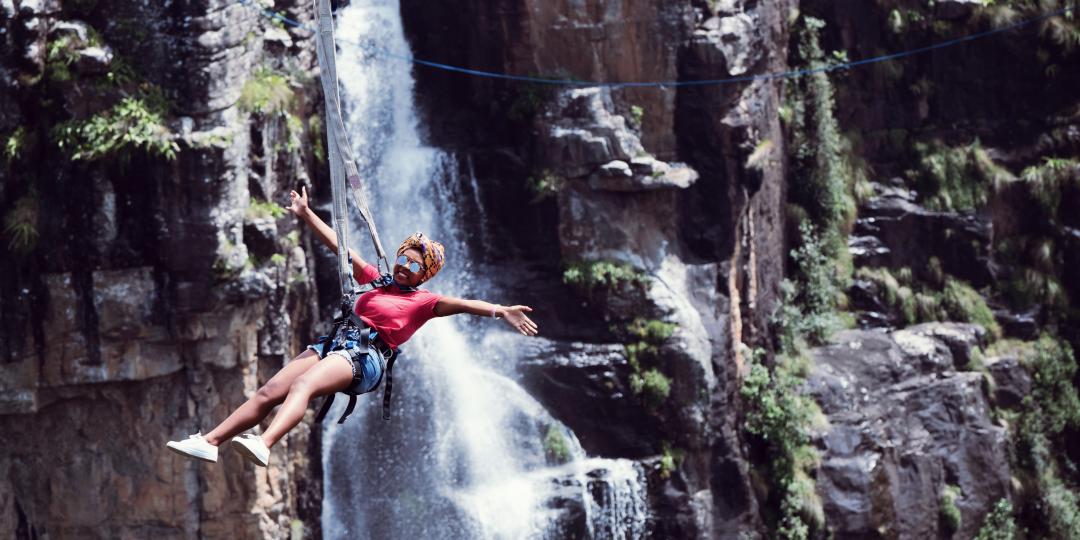Inbound industry association SATSA is throwing its weight behind South Africa’s adventure tourism sector, calling on industry stakeholders to join it in its mission to unlock the country’s potential as leading adventure tourism destination for local and international guests.
According to Allied Market Research, the global adventure tourism market is estimated to generate US$1.17trn by 2028. There is widespread acknowledgment that this market segment is resilient to natural and political setbacks, attracts high-value visitors and is aligned with sustainable practices, the research notes.
For a country like South Africa, where post-pandemic national imperatives include transformation in rural areas, job creation, geographic spread and the development of sustainable tourism products, adventure tourism offers a strong growth opportunity; not least because of the country’s rich assets, excellent climate and the already extensive array of adventure experiences on offer.
However, this potential can only be leveraged if these experiences are well-organised and safe, hence the need for a more formal approach, says André du Toit, SATSA Adventure Chapter Chair.
“Self-regulation of South Africa’s adventure tourism sector is a necessary but massive undertaking. Since it is essential that we build credibility around safety management and profile a reliable adventure industry, the first steps must be to develop a database of credible products so that our trade partners will have confidence that the products they endorse meet the global adventure tourism standards,” says Du Toit.
SATSA is therefore inviting adventure tourism stakeholders to join SATSA’s Adventure Chapter, which already comprises 121 businesses representing all provinces and adventure types. Chapter members will play a significant role in informing the self-regulatory framework devised by working groups, as well as participate in a community to network and grow the country’s adventure tourism industry and create awareness of South Africa’s adventure tourism value proposition and credibility.
“We invite all associations, operators, legal specialists, educational institutions, and any relevant regulatory authorities to join our working groups, which will facilitate the discussions and development of standards,” says Du Toit. “Interested parties wanting to join any of the task teams can also register.”
Globally, adventure tourism remains resilient
A recent survey from the Adventure Travel Trade Association (ATTA) shows that COVID-19 is still a concern for travellers and is having an impact on adventure travel businesses, but that the industry is generally recovering nonetheless. The top trending destinations are places with higher vaccination rates, and socially distanced itineraries and activities remain popular.
In its latest report, ATTA asked adventure travel tour operators from around the world to share information about their business operations as well as trends they are experiencing with respect to traveller demographics, destinations, and activities. The survey was conducted between February and March this year.
All respondents served more guests on average in 2021 than 2020, but none returned to pre-COVID-19 levels and, overall, respondents saw 66% fewer guests than in 2019; 9% of respondents had zero guests in 2021, down from 16% in 2020.
It is also clear that sustainability is being treated as a priority for the adventure tourism industry. Last year’s Industry Snapshot report from ATTA found that 40% of respondents were working toward a sustainability certification, and the number had increased to 45% this year.
Maintaining community livelihoods has also increased in importance in the past year, showing a dedication to social and economic sustainability, the organisation notes.

A key finding of the report is that 81% of respondents had some reduction in revenue this year compared with 2020, but it was much less extreme than the 2019-2020 decrease; 30% had a 2021 gross annual revenue of less than US$50 000, down from 45% in 2020.
The most popular consumer motivations for adventure travellers were ‘new experiences’, to ‘go off the beaten track’, and to ‘travel like a local’ as well. The hottest trending destinations for such travellers were the Mediterranean, Western Europe, the United States, Scandinavia, and the Caribbean.
Interestingly, approximately two-thirds (62%) of bookings internationally were made directly with the service provider.
From those surveyed in the adventure travel trade, 82% expected their 2022 nett profit to be equal to or better than in 2021. Fortunately, 73% are already seeing an improvement in domestic travel demand this year, while 62% are seeing the same in international travel demand.
“The need for and power of responsible adventure travel is higher than ever. All of you in the industry have been asked to stretch and hang in there longer than would have even been imaginable in 2019,” says ATTA CEO, Shannon Stowell. “Years from now we’ll look back and see how our community kept us safer and got stronger together; because while COVID-19 bent us, we are not broken. Adventure on, friends.”























